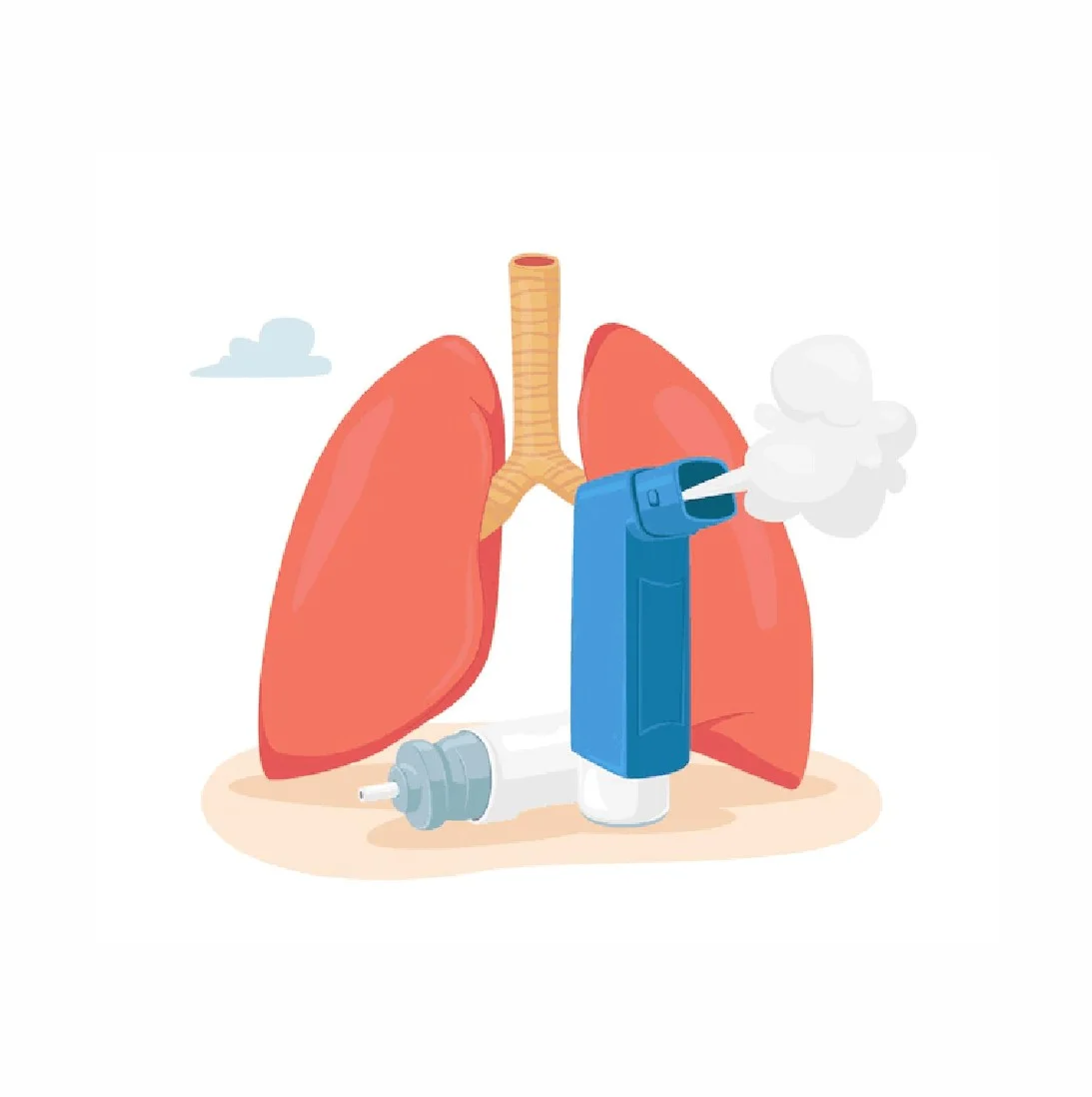
Department of Pulmonology and Respiratory Medicine
Welcome To Gangasheel Hospital
What is Asthma ?
Asthma is a condition in which the airways become narrow and swollen, producing excess mucus. This can make breathing difficult, causing coughing, wheezing when you exhale, and shortness of breath.
For some people, asthma is a minor annoyance. For others, it can be a major problem that interferes with daily activities and can lead to life-threatening asthma attacks.
You cannot cure asthma, but you can control your symptoms. Because asthma often changes over time, it's important to work with your doctor to keep track of signs and symptoms and adjust treatment as needed.
Asthma symptoms vary from person to person. In rare cases, asthma attacks may occur, or symptoms may occur only at certain times. B. During sports - or always have symptoms.
Signs and symptoms of asthma include:
- Shortness of breath
- Chest tightness or pain
- Wheezing when exhaling is a common sign of asthma in children.
- Exacerbation by viruses such as colds and flu
Signs that asthma may be exacerbated include:
The air is cold and dry Occupational asthma caused by workplace irritants such as chemical fumes, gases and dust Allergic asthma caused by airborne substances Pollen, mold spores,
cockroach excrement or happet Feces or dry saliva (pet dander)
- It is not clear why some people develop asthma and others do not, but it may be due to a combination of environmental and genetic (genetic) factors.
- Asthma Triggers Exposure to various irritants and allergens (allergens) can trigger the signs and symptoms of asthma.
- Airborne allergens such as pollen, dust mites, mold spores, pet dander, particles from cockroach feces, etc.
- Respiratory infections, etc.
- beta-blockers, aspirin, and ibuprofen (Advil, Motrin IB, etc.) and naproxen sodium (Aleve)strong emotions and stress salt and preservatives.
There is no way to prevent asthma, but you and your doctor can live with your condition and develop a step-by-step plan to prevent asthma attacks. Work with your doctor and health care team to develop a detailed plan for taking your medications and managing asthma attacks. After that, be sure to follow the plan.
Asthma is an ongoing condition requiring regular monitoring and treatment. Controlling your treatment gives you more control over your life.
Get vaccinated against flu and pneumonia. Keeping your immunizations up to date can help prevent flu and pneumonia from triggering asthma attacks.
Identify and avoid asthma triggers. From pollen and mold to cold air and pollution, many outdoor allergens and irritants can trigger an asthma attack. Find out what causes or exacerbates your asthma and take steps to avoid them.
Observe breathing. You can learn how to recognize the signs of an impending seizure, such as: B. Mild cough, wheezing, or shortness of breath.
However, lung function may decline before signs or symptoms are noticed, so peak airflow should be measured and recorded regularly using a home peak flow meter. A peak flow meter measures how hard you can exhale.
There are options for treating asthma. Your doctor may prescribe medications to control your symptoms.
Bronchodilators:
These drugs relax the muscles around the airways. Relaxed muscles allow the airways to move air. It also allows mucus to move more easily through the airways. These drugs relieve symptoms when they occur and are used for intermittent and chronic asthma.
Anti-inflammatory drugs:
These drugs reduce airway swelling and mucus production. They make it easier for air to move in and out of the lungs. Your healthcare provider may prescribe daily use to control or prevent symptoms of chronic asthma.
Asthma biologic therapy:
These are used for severe asthma in which symptoms persist despite adequate inhalation therapy.
There are several ways to take your asthma medication. You can inhale the medicine using a metered dose inhaler, nebulizer, or other asthma inhaler. Your doctor may prescribe oral medications that you swallow.
Yes, Asthma treatment is available in Bareilly at Gangasheel Hospital by the team of expert Pulmonologists in the city.
